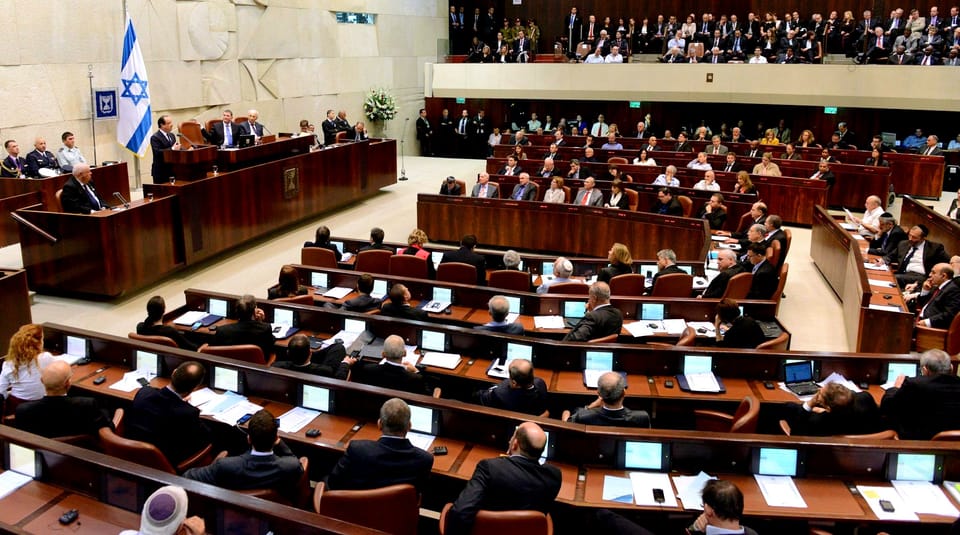What is the Chareidi View of the State of Israel’s Government — Is It Considered a Legitimate Authority?

This question strikes at the heart of many misunderstandings between the Chareidi community and broader Israeli society. It is often assumed that opposition to certain state policies reflects opposition to the state itself. But the Chareidi position is far more nuanced and rooted in Torah hashkafah and halachic tradition.
Halachic Legitimacy vs. Political Power
The Chareidi world distinguishes between de facto power and de jure halachic legitimacy.
From a Torah standpoint, legitimate rule over the Jewish People requires a foundation in Torah. As the Torah states in Devarim 17:15, a king must be chosen by Hashem, through a navi, and accepted by the people. Ramban explains there that the king’s role must be in full alignment with Torah law and values.
The government of the State of Israel, though it governs in Eretz Yisrael and is composed of Jews, was not established based on these Torah conditions. Its founders were primarily secular, and its laws are based on a modern Western legal system, not halachah. Therefore, while it exercises control, that does not equate to halachic legitimacy.
As Rav Elazar Menachem Man Shach zt”l put it: “The government has control. We do not deny that. But we do not grant them authority over Torah.”
Engagement Without Endorsement
Many people mistakenly believe that Chareidi involvement in elections, acceptance of state funding, or participation in the Knesset implies ideological approval of the state’s secular framework. This is a misunderstanding.
Gedolim such as the Chazon Ish zt”l, the Steipler Gaon zt”l, Rav Shach zt”l, Rav Yosef Shalom Elyashiv zt”l, and Rav Aharon Leib Shteinman zt”l made clear that such participation is a matter of hishtadlus—practical effort to safeguard Torah institutions and values under a secular regime—not acceptance of the state’s ideology.
The Chazon Ish gave a famous analogy: “If a wild dog enters your yard, you don’t ask whether you believe in the dog. You deal with it.”
In that spirit, the Chareidi community seeks to protect Torah interests without compromising its belief that only the Torah is the true constitution of the Jewish people.
The Rambam and Legitimate Kingship
The Rambam (Hilchos Melachim 1:3) writes that a Jewish king must be appointed by a navi and accepted by the Sanhedrin. A government lacking this is not recognized as a malchus in the halachic sense. The Israeli government lacks both Torah-based appointment and adherence, and therefore cannot be seen as a fulfillment of the Torah’s vision for Jewish leadership.
Varied Responses Within the Chareidi World
Not all groups respond identically to the state’s existence. Neturei Karta and similar groups reject all participation and refuse state funding. However, most mainstream Chareidi factions—including both Litvish and Chassidish—reject the ideological underpinnings of the secular state, but engage with it practically to protect Torah values and institutions.
The distinction is subtle but essential: cooperation for survival is not ideological agreement.
Rav Yosef Shalom Elyashiv zt”l reportedly said, “We don’t fight the state because we seek a fight. We fight to preserve Torah from erosion.”
Quotes from Gedolim
- Rav Moshe Feinstein zt”l wrote in Igros Moshe (Even HaEzer 4:27): “The leaders of the state are not guided by Torah. They must not dictate policy for Torah Jews.”
- Rav Elya Ber Wachtfogel shlita has said: “A secular government in Eretz Yisrael is not a fulfillment of Torah vision — it is a distortion of it.”
- Rav Chaim Kanievsky zt”l was known to emphasize: “Daas Torah comes from talmidei chachamim, not politicians.”
The Deletion That Says It All
When Israel’s Declaration of Independence was being drafted, the original version included reference to “the G-d of Israel” as the source of our right to the Land. That line was ultimately removed to satisfy secular parties.
Rav Reuven Grozovsky zt”l remarked after this omission: “They want the Land of Israel without the G-d of Israel. But they cannot separate the two.”
This encapsulates the core of the Chareidi view: without Torah, the Jewish People’s claim to Eretz Yisrael has no enduring meaning. The very right the state invokes is sourced in a Torah it often rejects.
Summary
- Chareidim do not see the Israeli government as halachically legitimate, though they recognize its political power.
- Torah Jewry engages pragmatically with the state to protect Torah and Klal Yisrael, but does not see the state as the fulfillment of the Torah’s vision.
- True leadership, in the eyes of Torah, comes only from those who embody and uphold its eternal truth.
This position is not one of rejection for the sake of conflict. It is one of fidelity—to a Mesorah thousands of years old, which recognizes only the authority of Torah as the guiding light for Am Yisrael.
Sources and Footnotes
- Devarim 17:15 with commentary of Rashi and Ramban.
- Rambam, Hilchos Melachim 1:3.
- Chazon Ish, Pe’er HaDor, Vol. 4 – Wild dog analogy.
- Rav Elazar Menachem Man Shach – Quoted in Michtavim uMaamarim.
- Rav Yosef Shalom Elyashiv – Comments cited by talmidim and in HaMevaser interviews.
- Rav Moshe Feinstein, Igros Moshe, Even HaEzer 4:27.
- Rav Elya Ber Wachtfogel – Public shiurim and interviews.
- Rav Reuven Grozovsky – Bayos HaZeman, Ch. 4.
- Rav Chaim Kanievsky – Comments preserved in Derech Emunah and other published volumes.
